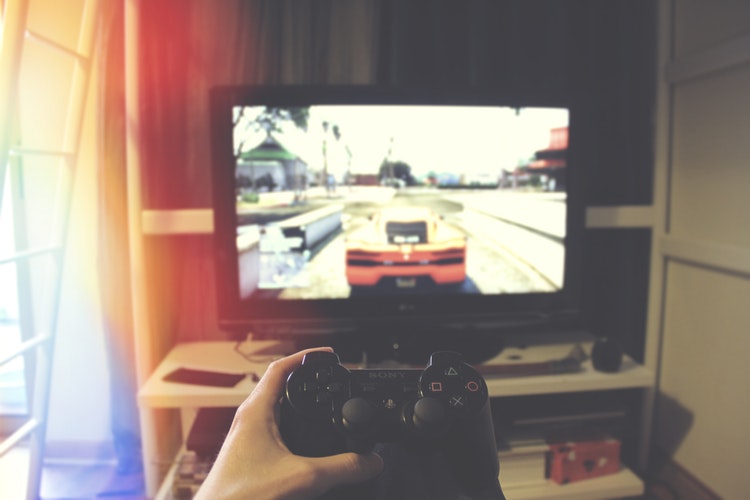| Disclosure: The links on this page are "Affiliate Links" and while these are shown at no costs to our viewers, they generate commissions for our website(s) |
Want to sharpen up your grey matter and get that much better at making decisions and solving problems?
Well then, put down that text book and pick up your Xbox controller!
Yep, it’s true: computer games can make you smarter! The only question remaining is: which ones? Not all games are made equal and some will do more harm than good.
So what is the thinking man’s video game of choice?

Brain Training Games
T he obvious place to start is with games designed specifically for brain training. These include the likes of Nintendo’s popular Brain Age series, or the well-known website Lumosity . These websites let you play games that are designed to be fun, while at the same time challenging the player to use their memory, their attention or their decision making skills.
Do these games work as advertised though? Unfortunately, it’s not clear that they do and most studies looking at these types of games are inconclusive. The general consensus? They train you to become better at the specific task they involve, but those skills aren’t necessarily transferable to other real-world abilities.
There are some exceptions to this rule however. Brainhq.com for instance is a website filled with games designed by leading scientists in the field of brain plasticity. These games have been shown in numerous studies to help make quality of life better for those with declining cognitive abilities, as well as to sharpen up general performance for healthy participants.
Another one that is very popular and proven effective, is the ‘Dual N-Back’ test. This is an exercise that involves keeping numbers in mind and looking for patterns as they come up. Unlike many other brain training programs, this one has been proven to result in measurable changes to the working memory – our ability to store numbers for the short term while we perform math etc.
Other Games
But the exciting news is that you don’t need to play games involving numbers or patterns of shapes in order to see cognitive benefits. In fact, many of the commercial AAA video games we play already can improve your brain power and may help you to think faster and more efficiently.
One recent study for instance, found that people who played video games were able to make decisions faster with no loss in accuracy when compared with non-gamer. Likewise, they also showed a range of other skills – including better spatial awareness, attention and even visual acuity.
The reason for these benefits is simple: when you play computer games, you are essentially simulating a high stress scenario. Your brain is required to work in over drive to prevent you from ‘dying’ and this results in greater focus and the honing of a range of skills.
It’s for this same reason that the military has actually been known to recruit from professional games tournaments.
So which games in particular will turn you into a sharp shooter? The clue is in the question: shooters. Or more specifically, the games looked a t in the study were first person shooters like Call Of Duty and Halo. These games require you to be continuously scanning the horizon for enemies, assessing threat levels and taking precise aim under pressure.

Learning and Growing
That isn’t to say that other games can’t also offer cognitive benefits though. In fact, the real benefit of gaming may lie in the constant need to learn new controls and rules. Each time you learn how to play a new game, you are forced to grasp new rules and to build new reflexes and reactions. This requires your brain’s plasticity and the more you use that plasticity, the more flexible it will remain. That means that learning other things will subsequently be easier.
It’s not just video games that do this so well though: it’s games in general. On a basic level, you can think of all games as a form of training, whether that’s Monopoly which teaches and trains basic business skills, or tennis which trains hand-eye coordination and reflexes.
Other games that will likely benefit your brain are those that require quick reactions and timing. ‘Bullet Hell’ games for instance are space shooters where there are often hundreds or even thousands of bullets on the screen at once – which requires almost meditative concentration to navigate.
Even something like Sonic the Hedgehog which challenges you to use precise controls and memorize level layouts can help to keep you sharper.

The Future
In the future, we’ll see more games that are designed specifically for brain training purposes and some of these might also involve a more physical aspect thanks to motion sensor controls.
What will also have a huge impact though is virtual reality. Virtual reality makes the ‘high stress’ environments far more lifelike to the point where our brains can hardly notice the difference. This is likely to result in skills that are even more transferable to the real world.
There’s already a game similar to this called ‘A Reckless Disregard for Gravity’. The game involves base jumping in the future and supports the use of the Oculus Rift, meaning you really feel as though you’re falling as you navigate around obstacles.
Imagine a future where motion sensors and VR are combined – allowing us to train in an almost ‘holo deck’ like setting.
Other Options
For now, if you want to increase the benefit you can get from games, then you might consider learning to code. As a coder, you’ll be able to create your own games and challenges and you’ll simultaneously need to ‘simulate’ the game in your mind as you create layouts and challenges for other players. Coding is actually a fantastic form of brain training and a skill that’s becoming more and more crucial in the modern world.








